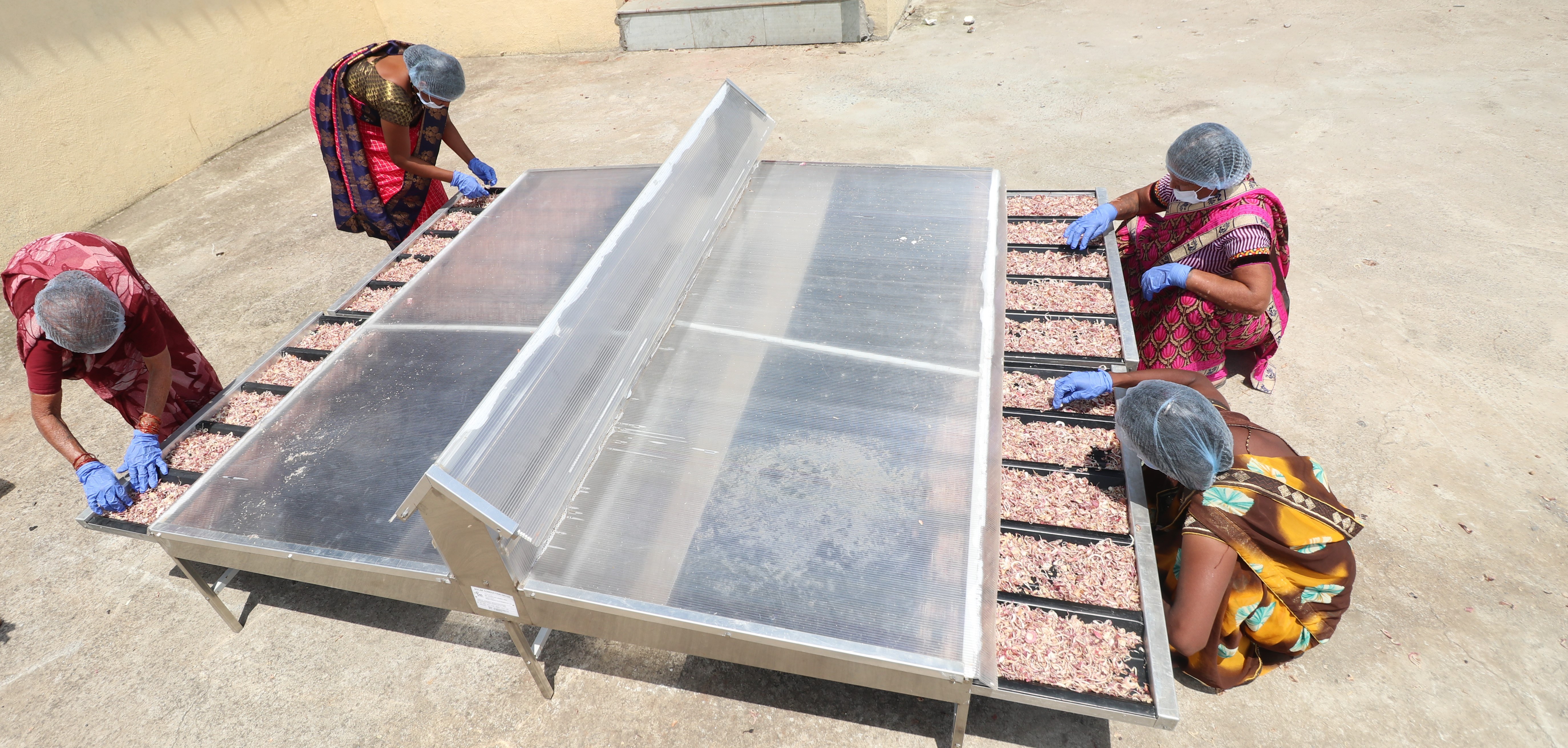How investing in climate resilience can foster economic development.
Jun 05, 2024
Led by the United Nations Environment Programme and celebrated annually on 5th June, World Environment Day 2024 is the largest global platform for public outreach to raise awareness and act to address the planet’s most-pressing environmental problems. This year, the focus is on land restoration, halting desertification and building drought resilience under the slogan “Our land. Our future. We are #GenerationRestoration.”
At GIF, we apply a climate lens to all of our investments, and our dedicated Innovating for Climate Resilience Fund invests in innovations with the potential to scale and support the world's poorest to build resilience and adaptation. We find and fund new ideas that help communities to adapt to extreme weather and build resilience to climate shocks, providing cost-effective ways of improving lives today.
It is radical and inaccurate to pit progress on climate change and economic development – and to present the case that only by unravelling economic development can we save the planet. A more measured view is that these agendas are complementary: economic development is critical in supporting adaptation. The United Nations’ Sustainable Development Goals define a dual agenda where development targets for people and planet sit alongside each other in a unifying framework.
Our current portfolio of climate innovations is already helping vulnerable communities to adapt to be able to withstand extreme weather events and climate shocks, as well as empowering communities to reduce their environmental impact. Here are three examples:
Combating plastic pollution and providing secure work
Mr Green Africa is a tech-enabled plastic recycling company operating in Kenya. By purchasing plastic waste directly from waste pickers, and recycling it into plastic pellets, which are then sold on to companies like Unilever for use in plastic product packaging, MGA reduce the need for virgin plastic resin.
MGA not only tackle the considerable challenge of waste management in developing cities, they also provide secure and dignified work for waste pickers who, being part of the informal sector, tend to be some of the most exploited workers in society.
GIF invested $1m in MGA in 2019, and we have since provided follow-on funding totalling $1.1m. With our support, MGA has been able to scale its operational capacity significantly to recycle more plastic, whilst extending its positive impact on waste collectors by offering more opportunities.
Empowering women whilst reducing produce wastage
S4S Technologies provide innovative dryers that use solar power to preserve the produce of smallholder farmers in India, offering them a profitable route to market for produce that would otherwise have gone to waste due to an inefficient and fragmented supply chain.
This not only helps poor farmers, who would otherwise lack the capital to turn a profit out of their excess produce, but it also reduces food waste which would otherwise emit CO2 whilst decomposing. The solar powered dryers are also environmentally friendly, not being reliant on electricity, and the transportation of the dried produce is more environmentally friendly, since it weighs far less.
Alongside enhancing income and environmental sustainability, S4S fosters female agency by employing rural women as processors to operate the dryers. They can earn double the annual income they make as farm labourers while operating the portable dryers from their own homes.
We invested $1.8 million in S4S in 2023, and are supporting them in deepening operations across multiple Indian states, scaling their procurement of fresh fruit and vegetables, and rolling out new technologies.
Providing mapping data to enable climate resilience efforts
PLACE is a non-profit that employs interconnected innovations to create detailed mapping data for urban and coastal areas in the developing world, and to provide this data to governments at a cheaper price.
At present, only 3% of Africa’s total mass is accurately mapped. Ultra-detailed, up-to-date mapping data is, however, an essential foundation for planning and implementing climate resilience and adaptation measures. For instance, the mapping of the exact populations and infrastructures that are vulnerable to flooding – and any efforts to build resilience against this – requires mapping that is accurate to centimetres, not metres.
By providing this data, PLACE is paving the way for accurately targeted climate action in the developing world, protecting communities, businesses, and environments from the impacts of climate change.
GIF awarded PLACE a $460K grant in 2022, and we have been supporting them in establishing a legal data trust model for data collection in emerging economies, validating this model by mapping two populated urban areas in developing economies, and demonstrating the use of the data by government entities and the PLACE Community.
Reducing poverty and protecting the environment are interconnected aims
Global economic development and environmental protection are deeply intertwined - because climate impacts will continue to be felt disproportionately by those living on less than $5 a day. GIF will continue to invest in innovations to increase both climate resilience and economic prosperity as we work towards a more equal future.
